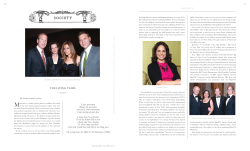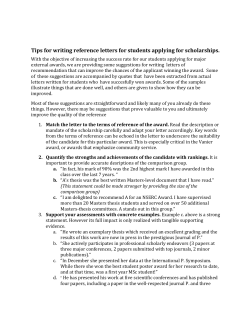
‘How to’ Funding Guide Biffa Award (Main Grants Programme) IRFU (ULSTER BRANCH)
‘How to’ Funding Guide ‘How to’ Funding Guide specific to: Biffa Award (Main Grants Programme) IRFU (ULSTER BRANCH) David Johnston Club & Community Development Officer 028 9049 3111 ext 257 david.johnston@ulsterrugby.com September 2013 1 ‘How to’ Funding Guide Table of Contents Section Page Number 1. INTRODUCTION 3 2. OVERVIEW 4 3. EXAMPLE PROJECTS 6 4. PRIORITIES & STEP BY STEP GUIDE 7 5. APPLICATION FORMS 8 2 ‘How to’ Funding Guide SECTION 1 – INTRODUCTION IRFU (Ulster Branch) have developed this ‘How to’ funding guide as a resource to provide a succinct support mechanism for Clubs wishing to apply for grant funding. Each ‘How to’ funding guide has been developed for a specific grant programme, details of which are within the document. Disclaimer IRFU (Ulster Branch) have developed this resource in good faith and have endeavoured to ensure that the information contained within is accurate at date of production. Clubs are responsible for ensuring that information contained within their own submission meets the up to date requirements of the grant programme. 3 ‘How to’ Funding Guide SECTION 2 – OVERVIEW Grant Programme Name: Biffa Award (Main Grants Programme) Link to Grant Programme website: http://www.biffa-award.org/about-us-inner Introduction Biffa Award is a multi-million pound fund which awards grants to community and environmental projects across the UK. The fund's money comes from landfill tax credits donated by Biffa Waste Services. Biffa Award is managed by the Royal Society of Wildlife Trusts (RSWT). The Biffa Award Main Grants Scheme provides grants of between £10,000 and £50,000 in four main categories. The two relevant categories for rugby clubs are: Community Buildings Recreation Deadlines: There is no official deadline for Expression of Interest Forms. These will be assessed by Biffa Award within 3 weeks. Applicants will either be invited to submit a Full Application or the application will be rejected. If invited to submit a Full Application, this must be received within 3 months from the date of invite. Amount Minimum bid - £10,000 (if your project costs less than £10,000, you can apply to a Small Grants programme which provides funding of between £250 and £10,000. Details of this programme can be sent upon request). Maximum bid - £50,000. If an application to Biffa Award is for partnership/match funding, the total project cost cannot be more than £200,000. Applications that have a total project cost of more than £50,000 must be accompanied by a project specific business plan. Third Party Contributor Under Landfill Communities Fund regulations, 90% of a grant can be paid by Biffa Award. Therefore, successful applicants will need to find someone (an individual or another organisation; THIS MUST NOT BE THE CLUB) who is willing to contribute the remaining 10%. This is something completely different to match funding. 4 ‘How to’ Funding Guide Eligibility The main criteria for projects are: The project's site is within 10 miles of a Biffa operation The project's site is also within 10 miles of any licensed landfill site The total cost of the project is less than £200,000 There will be a minimum of 104 days of full public access to the project per year Any Biffa Award grant will be used for site-based improvement work, not for equipment or running costs Biffa Award is unable to fund requests to help an existing facility meet the requirements of the Disability Discrimination Act Biffa Award is unable to fund retrospectively, so you should only apply for funding for work that will take place in the future 5 ‘How to’ Funding Guide SECTION 3 – EXAMPLE PROJECTS Examples of projects that Biffa Award can fund (this list is not exhaustive) Pitch refurbishment/drainage Extension to changing rooms Construction of toilet facilities Construction of a multi-use games area Refurbishment to a certain part of the building. Please follow this link for an extensive list of previously funded projects by Biffa Award http://www.biffa-award.org/projects What Biffa Award will NOT fund Core Costs (rent, heating, lighting, administration, management costs etc) Retrospective funding – work that has already taken place before any grant has been awarded Projects that are purely to add green technologies to a current building or to replace a current system that is fully functional – the direct community benefit is limited. Improvements to car parks, offices or services, or alterations to buildings in order to meet Disability Discrimination Act requirements. Portable items, because these could in theory be moved away from the site. Coaching costs Projects in School buildings or grounds, on the premises of hospitals, hospices, medical centres, day-care centres, charity offices, or for allotments Storage containers Feasibility studies Projects that are purely for fencing 6 ‘How to’ Funding Guide SECTION 4 – PRIORITIES & STEP BY STEP GUIDE Biffa Award priorities Biffa Award strongly recommends that applicants only apply when their project is in a position to start quickly – Biffa Award expects that a project should be in a position to start work and submit the first Claim Report Form within six months of an offer of funding. Biffa Award will give preference to projects that apply for their total costs, or projects that have already secured at least half of the funding needed. Biffa award will give priority to projects that include energy saving measures or green technology within the project plans. It will not, however, fund projects that are purely to add green technologies to a current building or to replace a current system that is fully functional, as direct community benefit is limited. Step by Step guide 1. Complete and submit an Expression of Interest Form – follow this link http://www.biffaward-application.org/biffa/init.pl and click on “register”. There is no deadline – Expression of Interest Forms can be submitted at any time. 2. Your Expression of Interest will be acknowledged within seven working days. You will be informed within three weeks whether you have been invited to submit a Full application. If you are invited, then the application form will be emailed to you along with a confirmation letter. 3. You must then return your completed Full Application form with supporting information within three months. 4. Your Full application form will be acknowledged within seven working days. Your regional grants officer will contact you if any further information is required. 5. Your application will be presented to the Biffa Award Board at the next available meeting. Meetings are held quarterly. Allow up to six months after submitting your Full application for a decision. If successful, you will be sent a Conditional Offer Letter. 6. You will have a maximum of four months to meet all conditions set out in the Conditional Offer Letter. Once all conditions have been met a Formal Offer Agreement and Bank Details Form will be sent to you. These must be returned within seven working days. 7. You must submit Claim Report Forms with evidence of expenditure on a quarterly basis. All payments are made in arrears. 7 ‘How to’ Funding Guide SECTION 5 – APPLICATION FORMS Specific details that will need to be included in Expression of Interest form Relating to step 1 above Contact details Organisation details Project details including costs, dates and aim of project Project description – including how your Club consulted with the wider community regarding the proposed project (survey, questionnaire, letters of support), how many groups or individuals will benefit and where the nearest similar facility is to your project). Benefits of the project Specific details/documents that will be required with a Full application form (if invited to submit) Relating to step 3 above Constitution (signed and dated) Accounts for the last 2 financial years (signed) Business Plan for the project (if total project costs are £50,000 or more) Budget sheet (as per application that is provided) Environmental policy Evidence of community consultation (surveys, questionnaires etc) Evidence of community support – at least 3 letters of support are required (from local groups, schools, politicians etc) Details of any hiring fees or concessions Details of ownership of land. Club must either own the land outright or have a lease on the land with at least 15 years remaining on the lease. Name of identified Third Party Contributor for 10% of project cost (This must not be the Club). 8 ‘How to’ Funding Guide Specific documents that will need to be submitted if a Conditional Letter of Offer is received Relating to step 6 above Proof of other funding (if you are not requesting full project costs from Biffa Award) Capital works specifications Confirmation of your Third Party Contributor’s agreement to provide their contribution Site Plans Photographs A copy of all relevant consents eg, planning permission, buildings control plan stage notice approval, if these are applicable for your project. If these consents are not required for the project, written confirmation from an appropriate person (e.g. architect) is needed to state that they are not required. Note that these consents can often take long periods of time to pass so it is crucial that your Club takes action on these at an early stage. Proof of ownership of land – solicitors letter if land is owned outright by Club or a copy of the lease Application form and guidance notes A sample copy of the Main Grants Scheme Expression of Interest Form and a copy of the Main Grants Scheme Guidance Notes can be found at the following link - http://www.biffaaward.org/application-forms Note that Expression of Interest Forms must be completed and submitted using the online resource on the Biffa Award website (link provided at step 1 of the Step by Step guide on page 7). If you require clarification on any of the points above or need to discuss a potential project, please contact David Johnston (IRFU Ulster Branch, Club & Community Development Officer): Office telephone – 02890 493111 ext 257 Mobile telephone – 07767168981 Email – david.johnston@ulsterrugby.com 9
© Copyright 2025









